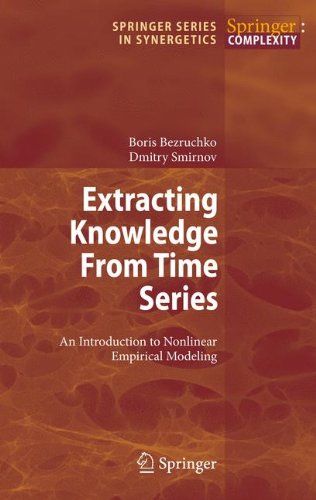

Most ebook files are in PDF format, so you can easily read them using various software such as Foxit Reader or directly on the Google Chrome browser.
Some ebook files are released by publishers in other formats such as .awz, .mobi, .epub, .fb2, etc. You may need to install specific software to read these formats on mobile/PC, such as Calibre.
Please read the tutorial at this link: https://ebookbell.com/faq
We offer FREE conversion to the popular formats you request; however, this may take some time. Therefore, right after payment, please email us, and we will try to provide the service as quickly as possible.
For some exceptional file formats or broken links (if any), please refrain from opening any disputes. Instead, email us first, and we will try to assist within a maximum of 6 hours.
EbookBell Team

0.0
0 reviewsThis book addresses the fundamental question of how to construct mathematical models for the evolution of dynamical systems from experimentally-obtained time series. It places emphasis on chaotic signals and nonlinear modeling and discusses different approaches to the forecast of future system evolution. In particular, it teaches readers how to construct difference and differential model equations depending on the amount of a priori information that is available on the system in addition to the experimental data sets. This book will benefit graduate students and researchers from all natural sciences who seek a self-contained and thorough introduction to this subject.